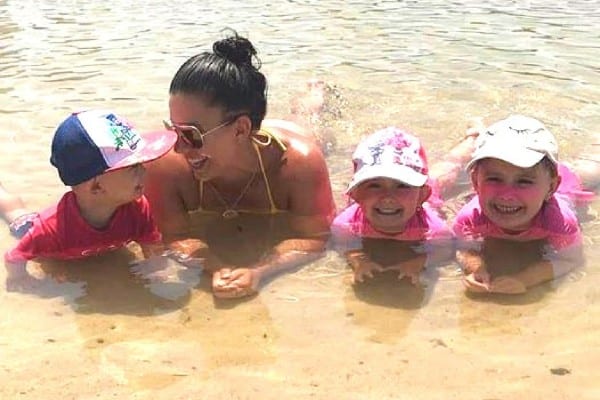In February 2020, following the horrific murder of Hannah Clark and her three children, a Queensland detective stood in front of the media and declared their job as investigators was to “keep a completely open mind”.
He said there were probably people in the community deciding which side to take in the investigation.
“Is this an issue of a woman suffering significant domestic violence, and her and her children perishing at the hands of the husband?”
“Or is it an instance of a husband being driven too far by issues that he’s suffered by certain circumstances into committing acts of this form?”
Following much community outrage (including from Women’s Agenda) at the “driven too far” narrative, the detective in question was removed from the case.
But how could such an experienced detective tasked with addressing the media ever have uttered such words? How could he have suggested there could be excuses for perpetrators, and have let the idea of such excuses be aired so publicly?
Mistakes were made following the murder of Hannah and her children Aaliyah (aged six), Laianah (aged four) and Trey (aged three), by Hannah’s estranged husband Rowan Baxter.
And it seems that “potentially critical mistakes” were also made by police in the lead-up to their murders, according to an extraordinary investigation published by The Guardian this week, including allegations from a courageous whistleblower that the police response in the months leading up to the murders was not properly investigated.
Also released by The Guardian is a sickening video of Rowan Baxter speaking with police just weeks prior to him splashing fuel over the car driven by Hannah with her three kids inside, and setting it alight.
In the footage captured by police body cameras, Rowan Baxter talks with police while Laianah sits on his lap — he had taken Laianah during an access visit and driven her interstate. The footage shows two male police officers serving Baxter with a police protection order prohibiting him from approaching the children or Hannah’s home. The police officers then calmly tell Baxter how to challenge the order in court. They tell him to talk to his friends, and find someone who can provide a reference. One can be overheard adding, “To say you are a good dad and … don’t need any conditions.”
In the footage, one of the police officers also appears to be agreeing with Baxter that women make up domestic violence allegations. Then, the police officer switches the camera off.
The video is difficult to watch and deeply distressing. We know what happens next. We can see the potential interventions that could have occurred, and yet instead we witness three men — two of them police officers — discussing how women make up domestic violence allegations and sharing ideas on how to get around a court order in place to protect a woman and her children. The comments are made in the presence of one of the children.
Within weeks, Laianah will be burned alive by the man holding her, alongside her younger brother, older sister and her mother.
Like the senior constable telling the media they would be investigating whether a husband had been “driven too far”, these police officers made mistakes that didn’t happen in a vacuum: mistakes that reflect a culture they were trained in and live in.
And the tragic story of Hannah and her children is far from isolated. It’s a story that continues five years later.
And to think also that this footage was played during the coronial inquest into these murders, but no mention of the disturbing comments by the officers was made in the findings.
Read The Guardian’s investigation here.
If you or someone you know is in immediate danger, call 000.
If you need help and advice call 1800 Respect on 1800 737 732, Men’s Referral Service on 1300 766 491 or Lifeline on 13 11 14.


